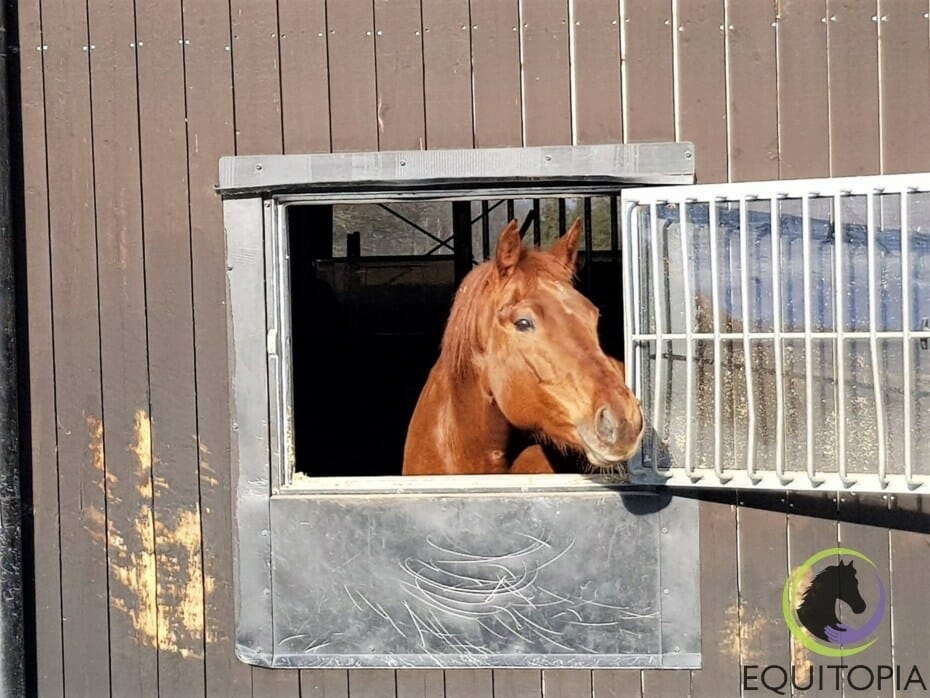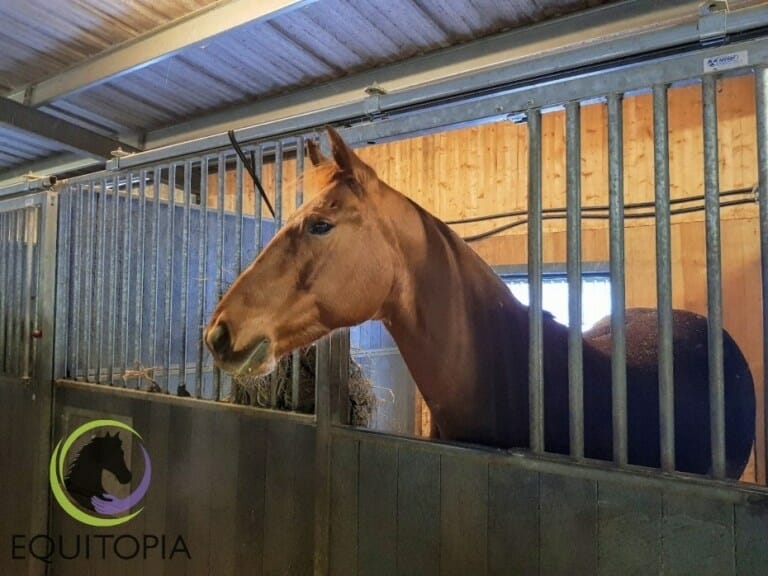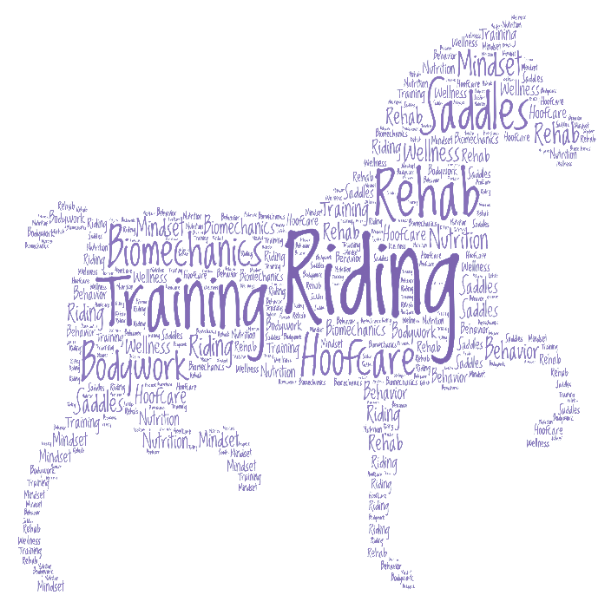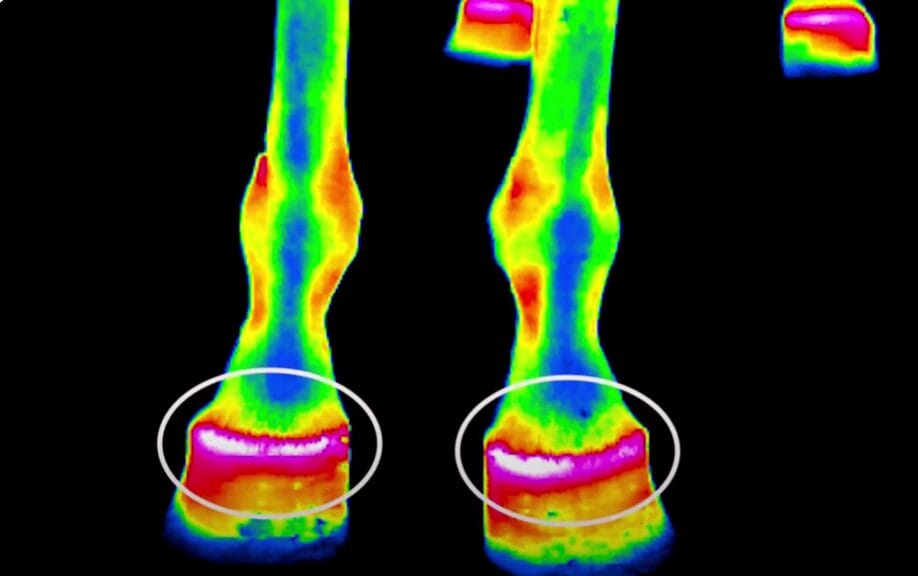
Regardless of how much you learn and how much you “do the right things” as a horse owner you are still dealing with horses. There will be mishaps and there will be injuries.
When your veterinarian hits you with the bad news that your horse needs to be on box rest there are three immediate problems you need to solve!
-
- How to ensure that there will be no additional injuries due to box rest?
-
- How to ensure that he can heal physically, while not getting mentally damaged in the process?
- How to ensure good gut health? This is especially important if your horse needs medication like Bute, which can be tough on the stomach.
These are three very important questions you must figure out when your horse is sentenced to box rest. The solutions applied to fix these three problems will most likely depend on:
-
- Your horse’s living situation (own stable, livery yard/boarding stable)
-
- Your abilities (financial and location wise)
-
- Your horse’s temperament (how he reacts to confinement)
- Possibility for supervision

Photo above: Barley is watching the foals play in the indoor arena, which is right across the aisle.
I have a very strong-minded 10yr old Quarter gelding, who easily gets attached to other horses. He is a control freak – he always needs to know what’s happening. On top of that, he always wants to please and do cool stuff!
With his specific character in mind I made a plan on how we were going to make his confinement more tolerable. I would like to share that process with you.
At our livery yard, all horses leave for the pasture at 5.30 AM. That means he is alone and without any supervision during the day. Knowing his personality, I had to find a place that offered:
-
- Horses being inside with him so that he wasn’t alone.
-
- A busy place with lots of movement during the day which kept his mind occupied, and he was able to fulfill his need to watch what is going on.
-
- Supervision, mostly throughout the day, in case he would get anxious/nervous/upset.
- Possibility to hang up a hay net with low energy forage to ensure trickle feeding.
Some horses cope much better with confinement and solitude (although I would recommend always being on the lookout for signs of the horse becoming shut down). Putting your horse’s welfare first is fundamental for the sake of a speedy recovery. In difficult cases I would recommend consulting an equine behaviorist.
Depending on your horse’s personality you might need to become creative. Horses can easily get bored during box rest. Some of them can get pretty creative on their own too and can injure themselves further in the process of alleviating boredom. As we want to prevent further injuries, this is something to be vigilant about.

Photo above: A nice, long grooming session is good for the both of you! Get the blood circulation going and check for tension and stiffness.
People might think that it is less maintenance to have a horse on box rest, as you can skip all the normal chores like cleaning tack, plan the training, set up for an exercise in the indoor arena or prep food/water out in the pasture. But in many cases, a horse on box rest will require a much higher level of maintenance than a healthy horse.
It’s up to you to stimulate your horse’s brain with small exercises without creating arousal. Too much activity can quickly turn into stress as well, so it can be tricky to find the middle ground. You can try hanging treats from the ceiling or get him one of those toys that dispense treats. Make sure not to overdo it though, treats aren’t suitable for all horses.
Depending on your horse’s range of movement you need to consider exercises that don´t jeopardize the healing of the wound/injury. Try looking up some simple exercises for strengthening the stabilizing muscles or if that’s out of the questions, learn some basic massage moves.
It´s all about the balance. Knowing your horse by heart will help you to have the right thought process and to prepare for the box rest. Depending on how long the box rest must be, you will also have to reevaluate what you do or how you do it. Listening to your horse, checking for subtle signs of mood swings or changed behavior will help you to figure out what your horse asks of you. Never underestimate the comforting effect of just hanging out with your horse. Just spending time with him, talking, reading or singing to him, or even listening to some music together can be very beneficial.
This post was written by Anna Volkmann.



